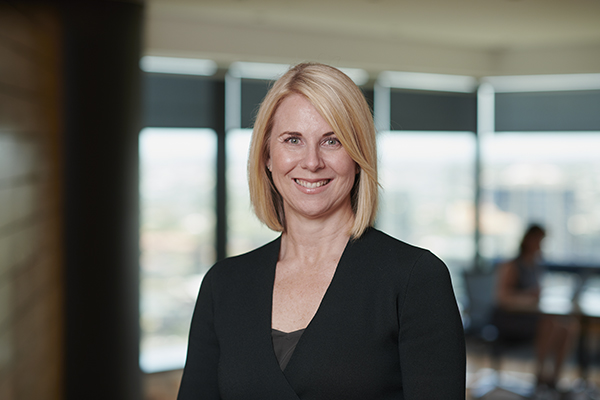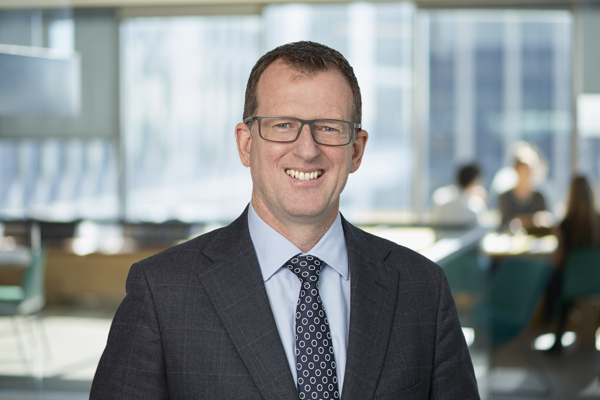Day 1 – Monday 7 October
Melbourne Hearing 2 began last week, focusing on the barriers faced by people from culturally, linguistically and other diverse backgrounds in accessing aged care services. The first to give evidence, Angelos Angeli, detailed his experience caring for his Cypriot mother who spoke limited English and the difficulty they encountered with the Government’s home care package. The second, third and fourth witnesses then gave evidence together, speaking of the role that representative organisations for diverse groups play in assisting aged care providers. Samantha Edmonds, Policy and Research Manager at National LGBTI Health Alliance; Noeleen Tunny, Acting Director of the Policy and Advocacy Unit for the Victorian Aboriginal Community Controlled Health Organisation (VACCHO); and Mary Patetsos, Chairperson of the Federation of Ethnic Communities’ Councils of Australia all emphasised a need to recognise and ensure ‘cultural safety’. Samantha Jewell, Executive Manager at Lifeview was the fifth witness for the day, and she outlined the work carried out by Lifeview in accrediting aged care service providers as safe and inclusive for LGBTI people. Fiona York, Executive Officer of Housing for the Aged Action Group concluded the session speaking about the risk of homelessness faced by many people over the aged of 50 and the benefits to the aged care sector of increased funding for public housing.
Day 2 – Tuesday 8 October
The second day of Melbourne Hearing 2 opened with Vietnam veteran, Brian Lynch describing his experience in the aged care system and the benefits he derived from living in a RSL care facility. Nathan Klinge, CEO of RSL Care SA then spoke of the role RSL Care provides in caring for veterans, and stressed the need for more organisations like RSL Care to cater for aging veterans, particularly as the prevalence of veterans experiencing homelessness increases. The Manager of Growth and Development at Helping Hand, Helen Radoslovich, then outlined the work Helping Hand undertakes in the aged care sector, specifically working with culturally and linguistically diverse members of the community, as well as LGBTI people and Forgotten Australians. The Commission then heard from Anne Tudor who recounted her experience caring for her partner of 35 years, Edie, and the discrimination she believes she and Edie experienced from the Commonwealth Home Support Programme. Secretary of the Commonwealth Department of Veteran Affairs, Elizabeth Cosson AM CSC, gave evidence on the collection of data and data sharing processes conducted by the Department of Veterans Affairs and the Department of Health. She further noted that the Department of Veterans Affairs should be doing more to raise awareness of the services that veterans are entitled to access. The sixth witness for the day, Janette McGuire, gave direct evidence of her mother’s experience in an aged care facility and detailed how the impact of her mother’s childhood trauma as a Forgotten Australian affected her access to care services. Dr Duncan McKellar, Head of Unit for the Older Persons’ Mental Health Service at Northern Adelaide Local Health Network was the final witness for the day, explaining the need for organisations to be fully educated and informed about trauma on a corporate and clinical governance level.
Day 3 – Wednesday 9 October
Day three of Melbourne Hearing 2 opened with Jaye Smith, First Assistant Secretary of the Residential and Flexible Aged Care Division of the Commonwealth Department of Health, speaking about the Department’s requirements for service providers who claim to specialise in providing care for aged care recipients with special and diverse needs. Mr Smith noted that the Department is working on creating guidelines for specialisation and accepted that this is an issue that needs to be further looked at. Heather Brown then gave direct evidence of her experience as a Forgotten Australian, having experienced abuse at the hands of the State while in institutional care as a child, and the trauma she now deals with living in an aged care facility, as a result of her childhood abuse. First Assistant Secretary of In-Home Aged Care Division at the Commonwealth Department of Health, Dr Nicholas Hartland, gave evidence on the Department’s role in implementing the Aged Care Legislation Amendment (Increasing Consumer Choice) Act 2016 (Cth) through the delivery of home care packages, although noted that there are difficulties in obtaining data regarding homeless people and Forgotten Australians.
Day 4 – Thursday 10 October
Day four of Melbourne Hearing 2 opened with a volunteer carer in an aged care facility, appearing under the pseudonym Malloy, speaking of the discrimination she felt as a lesbian working in the aged care sector. Ann Wunsch, Executive Director of Quality Assessment and Monitoring Operations, Aged Care Quality and Safety Commission was then examined on the accreditation processes of the Aged Care Quality and Safety Commission and outlined the extent to which cultural safety is considered in the process. Dr Philip O’Meara, Director of the Participation and Inclusion Branch at the Department of Human Services (Vic) gave evidence on the role of diversity advisors, access and support officers in the Department’s programme, ‘Designing for Diversity’. CEO of Australian Multicultural Community Services, Elizabeth Drozd, then spoke about her experience with the Australian Multicultural Community Services who assist people with limited English proficiency in accessing aged care services. David Panter, CEO of ECH Inc was the final witness for the day and spoke of the work carried out by ECH in providing home care services as well as the benefits it delivered to the LGBTI community in particular.
Day 5 – Friday 11 October
The first witness to give evidence on the final day of e Melbourne Hearing 2 was Catharina Nieuwenhoven, who spoke of the difficulties that migrants faced in obtaining access to aged care services. CEO of Aboriginal Community Elder Services, Moreen Lyons then described the work of the Aboriginal Community Elder Services in providing culturally safe residential and hostel care for indigenous people over the age of 45. The third and fourth witnesses, Uncle Brian Campbell and Uncle Brian Birch, provided evidence together, detailing the care they received from Aboriginal Community Elder Services. Uncle Campbell spoke of the trauma he experienced as a member of the Stolen Generation and how that has impacted his aged care needs. Jaklina Michael, Diversity Manager of Bolton Clarke then outlined need for diversity training and implementing a diversity framework at aged care facilities. She noted that the training and policies associated with such programmes are costly and resource intensive, therefore not always implemented by providers. The final witness for the Melbourne hearing week was Elizabeth Karn, who expressed her frustration as a deaf woman who is unable to access AUSLAN interpreters under the current aged care system. The system provides more for foreign languages than deaf people. Counsel Assisting concluded the hearing by expressing concern that the current aged care system does not allow for the tracking or monitoring of special needs groups. He noted that the lack of will and/or a lack of resources were to blame.
The Royal Commission hearings continue in Melbourne this week. Melbourne Hearing 3 will inquire into the aged care workforce, with a focus on how to enhance capacity and how to make the aged care sector a more attractive and rewarding place to work.







